James Fenton Quotes & Sayings
55 most famous James Fenton quotes and sayings (poet). These are the first 10 quotes we have.
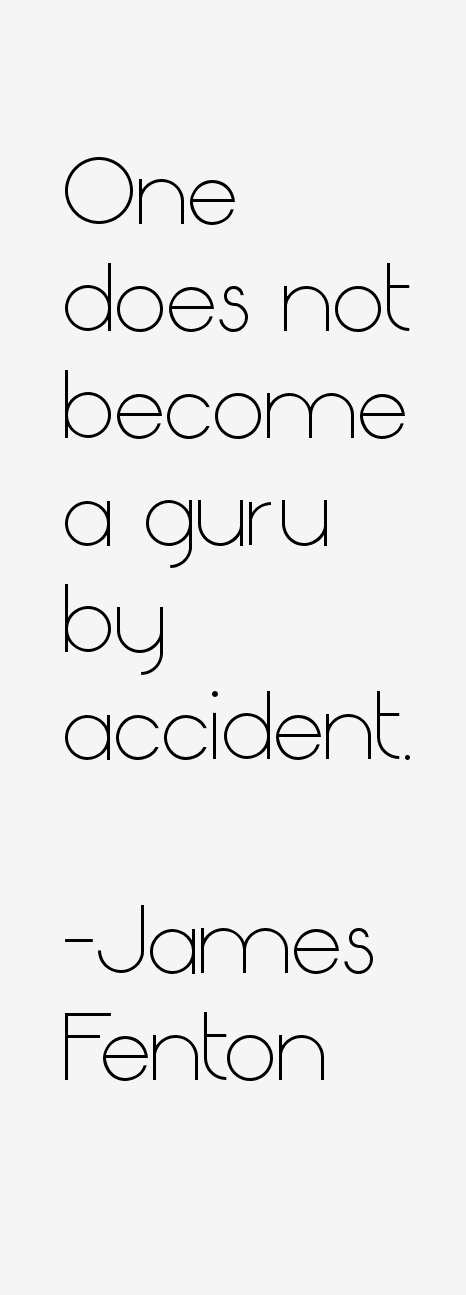
“One does not become a guru by accident.”
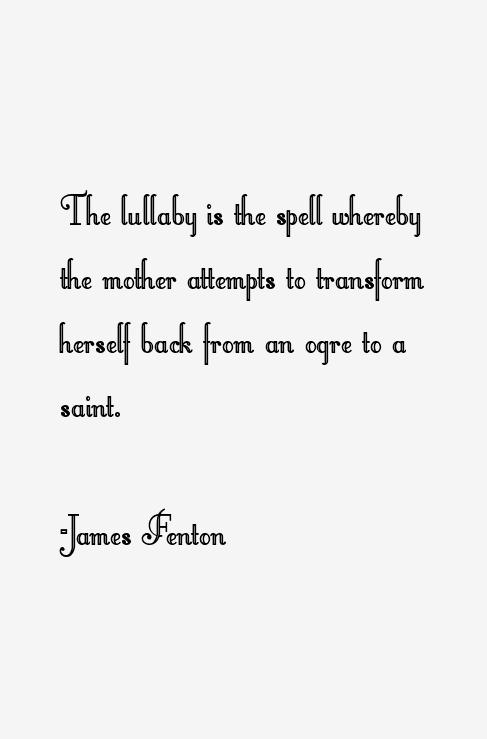
“The lullaby is the spell whereby the mother attempts to transform herself back from an ogre to a saint.”

“English poetry begins whenever we decide to say the modern English language begins, and it extends as far as we decide to say that the English language extends.”
“Free verse seemed democratic because it offered freedom of access to writers. And those who disdained free verse would always be open to accusations of elitism, mandarinism. Open form was like common ground on which all might graze their cattle - it was not to be closed in by usurping landlords.”
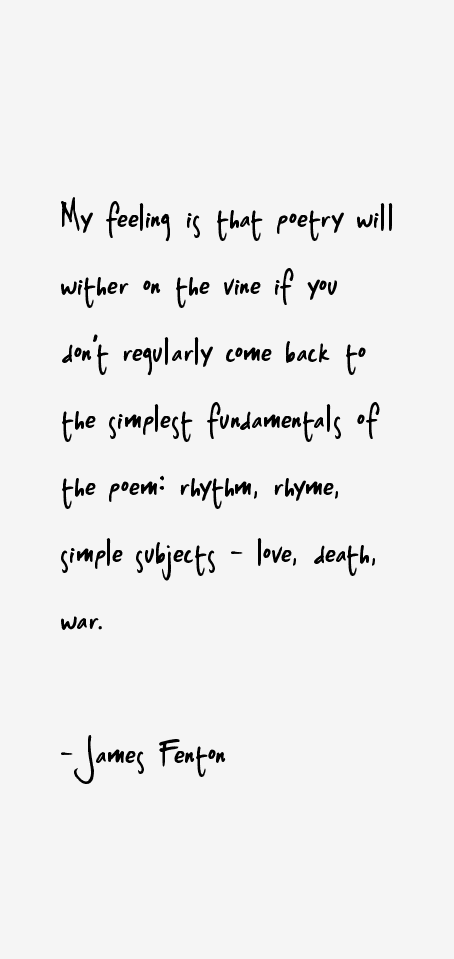
“My feeling is that poetry will wither on the vine if you don't regularly come back to the simplest fundamentals of the poem: rhythm, rhyme, simple subjects - love, death, war.”
“Some people think that English poetry begins with the Anglo-Saxons. I don't, because I can't accept that there is any continuity between the traditions of Anglo-Saxon poetry and those established in English poetry by the time of, say, Shakespeare. And anyway, Anglo-Saxon is a different language, which has to be learned.”
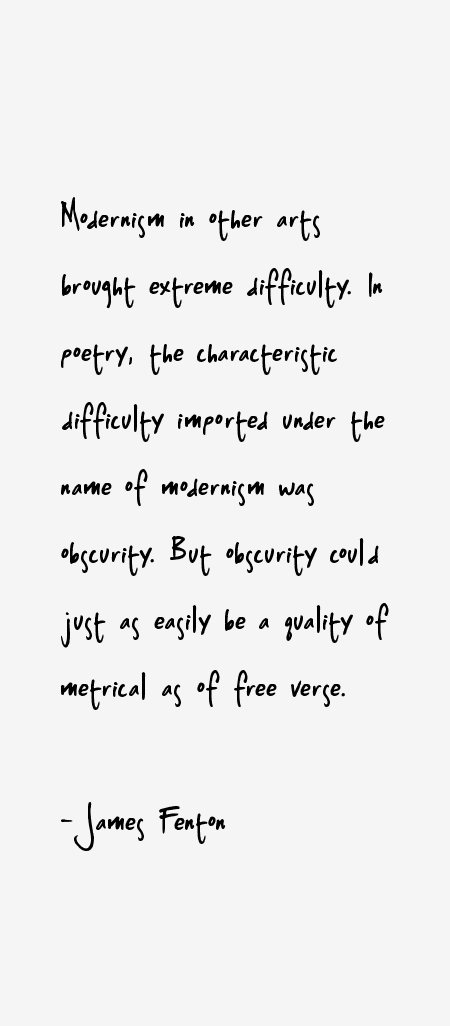
“Modernism in other arts brought extreme difficulty. In poetry, the characteristic difficulty imported under the name of modernism was obscurity. But obscurity could just as easily be a quality of metrical as of free verse.”
“Some of my educated Filipino friends were aspiring poets, but their aspirations were all in the direction of the United States. They had no desire to learn from the bardic tradition that continued in the barrios. Their ideal would have been to write something that would get them to Iowa, where they would study creative writing.”
“Writing for the page is only one form of writing for the eye. Wherever solemn inscriptions are put up in public places, there is a sense that the site and the occasion demand a form of writing which goes beyond plain informative prose. Each word is so valued that the letters forming it are seen as objects of solemn beauty.”
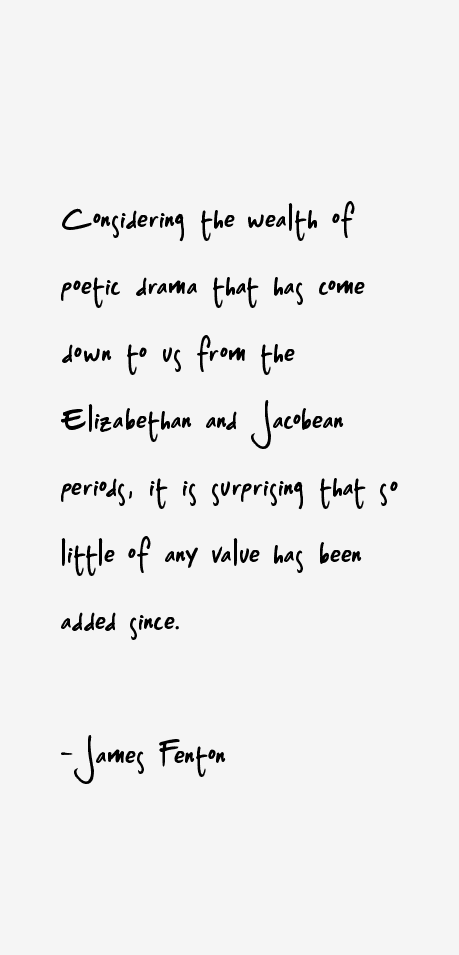
“Considering the wealth of poetic drama that has come down to us from the Elizabethan and Jacobean periods, it is surprising that so little of any value has been added since.”
James Fenton Quotes Rating
No Ratings Yet
Leave A Comment
























